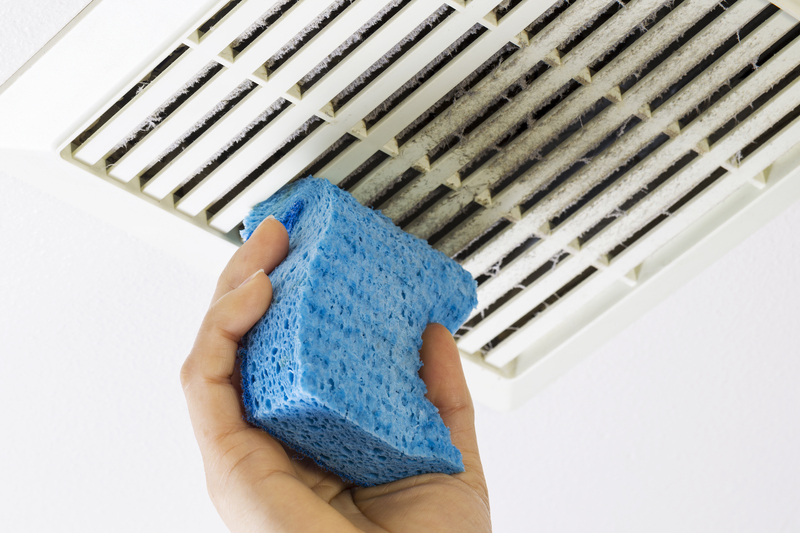Rejuvenate Your Jewels: Cleaning Techniques
Posted on 20/09/2025
Rejuvenate Your Jewels: Cleaning Techniques for Sparkling Jewelry
Your cherished jewelry pieces deserve to shine as brilliantly as the day you got them. Over time, exposure to oils, lotions, dust, and daily wear can dull their sparkle. Proper cleaning and care can bring back their luster, extend their life, and preserve their sentimental and financial value. In this comprehensive guide, we'll explore various jewelry cleaning techniques, from at-home solutions to professional services and tips for selecting the best method for each piece.

Why Cleaning Your Jewelry Matters
A routine cleaning regimen does more than just rejuvenate the sparkle of your jewels. Regular maintenance prevents dirt buildup, reduces the risk of long-term tarnishing, helps you spot loose settings, and maintains your jewelry's brilliance. Rejuvenating your jewels isn't just about appearances--it's about preservation and lasting enjoyment.
Risks of Neglected Jewelry
- Dirt and grime in crevices can weaken prongs, risking stone loss.
- Persistent moisture may contribute to tarnish, corrosion, or even pitting.
- Rings--and especially engagement rings--can harbor germs and bacteria, leading to skin irritation.
- Neglect can dull gems and metals, making heirlooms appear cheap and unkempt.
Understanding Your Jewels: Different Materials, Different Needs
Jewelry comes in an array of materials and settings, each with unique care requirements. Rejuvenating your jewels effectively means knowing what you're working with.
Gold and Platinum
- These precious metals are resilient but can still scratch and lose luster over time.
- Avoid abrasive cleaners and rough scrubbing to maintain their smooth surface.
Silver
- Prone to tarnish, silver requires regular polishing and storage away from air and moisture.
- Special silver polishes can help restore shine, but avoid harsh chlorine and bleach.
Gemstones
- Diamonds are tough but can attract greasy buildup.
- Softer stones like pearls, opals, and turquoise need gentler touch and specific cleaners.
- Knowing your gemstone's Mohs hardness can help guide soaking and cleaning methods.
Fashion Jewelry (Costume Jewelry)
- These pieces may have glued settings or gold/silver-plated surfaces that require non-invasive cleaning.
Home-Based Jewelry Cleaning Techniques
Enjoying the brilliance of your jewelry doesn't always require a professional touch! Here are effective at-home jewelry cleaning techniques for rejuvenating your jewels safely.
1. The Classic Soak and Brush Method
Ideal for: Diamonds, sapphires, gold, platinum, and other hard stones and metals.
- Mix a few drops of mild dish soap with warm water in a small bowl.
- Soak jewelry for 15-20 minutes to loosen grime.
- Use a soft-bristled toothbrush to gently scrub, paying special attention to crevices and behind settings.
- Rinse thoroughly under lukewarm running water and pat dry with a lint-free cloth.
Tip: Always place a strainer or plug in the sink to avoid accidental loss down the drain.
2. Baking Soda Paste for Tarnished Silver
When silver dulls, a simple homemade paste can work wonders.
- Mix three parts baking soda to one part water, creating a thick paste.
- Using a soft cloth, rub the paste gently onto the silver jewelry, focusing on tarnished spots.
- Rinse under warm water, then polish dry with a clean, soft towel.
Warning: Do not use this on oxidized or intentionally blackened silver finishes!
3. Vinegar Solution for Silver and Gold
- Fill a cup with white vinegar; add a teaspoon of baking soda for extra cleaning power.
- Soak jewelry for 2-3 hours.
- Rinse well and dry thoroughly.
4. Gentle Cleaning for Pearls and Porous Stones
Pearls, opals, turquoise, and similar gems require special care when rejuvenating their luster:
- Wipe pearls gently with a very soft, damp cloth after each wear to remove body oils and residue.
- Never soak pearls or use ultrasonic/steam cleaners--they can cause irreversible damage.
- For a deeper clean, dip the cloth in a lightly soapy solution, wipe the pearls, then rinse the cloth in clean water and wipe again.
5. Cleaning Costume Jewelry
- Use a dry brush or soft cloth to remove dust and dirt.
- If absolutely necessary, slightly dampen a cloth with water (not soaking) and gently wipe the piece, avoiding any glued areas.
- Always dry thoroughly to avoid tarnish or rust.
Professional Jewelry Cleaning Services
For a truly comprehensive rejuvenation, periodic professional cleaning is recommended. Jewelers use ultrasonic machines, steam cleaners, and professional polishing techniques that can restore sparkle and address more intricate settings. Most fine jewelry retailers offer cleaning (sometimes free!) for pieces bought from them and can check for loose prongs and general wear.
- Ultrasonic Cleaners: These use high-frequency sound waves to remove dirt from hard-to-reach places--but beware, some gemstones (like emeralds or pearls) can crack or become damaged.
- Steam Cleaning: Uses high-pressure steam to blast away grime, best for hard stones and metals only.
- Polishing: Jewelers can buff out scratches on certain metals (but over-polishing can thin down prongs and rings over decades).
When to Use a Professional Service
- If the item has intricate settings or hidden dirt that's impossible to reach at home.
- For antique or delicate heirlooms.
- If stones are loose, dull, or you suspect damage.
- When DIY efforts don't restore brilliance.
Essential Tips for Rejuvenating Your Jewels
Cleaning is only part of keeping your jewelry dazzling. Here's how to maximize the longevity and allure of your pieces:
Regular Maintenance Checklist
- Remove jewelry during rugged activities: gym, gardening, house cleaning.
- Wipe jewelry after wearing to remove oils, sweat, and dirt.
- Store items individually in soft pouches or anti-tarnish boxes.
- Review settings and clasps for loose stones or signs of damage monthly.
What to Avoid When Cleaning Jewelry
- Bleach and household cleaners--highly corrosive!
- Abrasive toothpaste, hard bristle brushes, or rough cloths.
- Hot water for pearls, opals, or porous stones.
- Excessive soaking for glued or plated jewelry.
Storing Your Jewels: Prevention Is Better Than the Cure
- Use anti-tarnish strips and silica packets to combat moisture and oxidation.
- Hang necklaces and bracelets to prevent tangling.
- Keep silver, gold, and costume jewelry in separate compartments.
Eco-Friendly and Alternative Cleaning Techniques
Looking for "green" ways to rejuvenate your jewels? Many household ingredients can safely clean your pieces (but remember--always confirm compatibility with your jewelry type first).
Lemon and Baking Soda for Silver
- Mix a teaspoon of lemon juice with a tablespoon of baking soda to create a fizzy paste.
- Gently buff silver jewelry, then rinse well and dry.
Club Soda for Gemstones
- Soak diamonds, rubies, and sapphires in club soda overnight for a gentle yet effective shine boost.
Aluminum Foil Bath for Large Silver Pieces
- Line a bowl with aluminum foil, fill with hot water, add a tablespoon each of baking soda and salt.
- Place jewelry on the foil and let soak for several minutes. Chemical reaction removes tarnish; rinse and polish dry.
Specific Care for Special Types of Jewelry
Antique or Vintage Jewelry
- Never use strong chemicals; stick to very gentle cleaning or consult a restoration expert.
- Antique pearls, cameos, or filigree may deteriorate in water. Limit moisture exposure!
Watches and Smart Jewelry
- Wipe metal bands with a soft cloth; clean leather straps sparingly.
- Avoid moisture around delicate watch mechanisms.
- Smart jewelry (like fitness trackers) should always follow manufacturer cleaning guidelines.
Top Jewelry Cleaning Products Reviewed
- Jewelry Cleaning Dips: Best for gold and diamond jewelry, but avoid pearls and porous stones. Read labels carefully.
- Ultrasonic Cleaners for Home Use: Affordable options now exist, but always check which jewelry types are safe for ultrasonic cleaning.
- Non-Toxic Cleaners: Biodegradable and gentle solutions (like Simple Shine or Connoisseurs) are safer for you and the environment.
- Polishing Cloths: Specially impregnated with micro-abrasives, these cloths are ideal for a quick shine, especially on silver and gold.

Frequently Asked Questions: Revitalizing Your Jewelry
- How often should I clean my jewelry?
Once a month for frequently worn pieces like wedding rings; every few months for less regular wear. - Is it safe to clean all jewelry at home?
Most pieces are fine for gentle DIY cleaning, but consult a jeweler if you're unsure or the item is valuable or delicate. - Does toothpaste clean jewelry?
No--most toothpastes are too abrasive and can scratch metal and soft stones. - Can I use boiling water?
Boiling water is only safe for hard stones (like diamonds, sapphires) set in durable metals (gold, platinum)--never for pearls, opals, fashion jewelry, or antique pieces.
Conclusion: Rejuvenate Your Jewels with Confidence
Rejuvenating your jewels doesn't have to be intimidating or expensive. By understanding the composition of your jewelry and using the right cleaning techniques, you can keep your cherished pieces luminous and beautiful for generations. Whether you opt for gentle at-home cleaning or seek the expertise of a professional, proper care is an investment in the brilliance, safety, and sentimental value of your jewels.
Give your jewelry a regular beauty boost! With this in-depth guide to cleaning techniques, you'll always have a reason to let your jewels shine.




